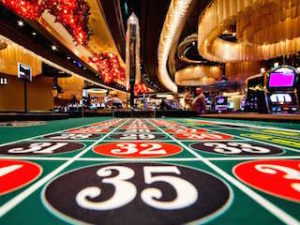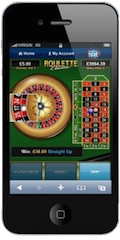The earliest form of roulette appeared in the 17th century. Blaise Pascal, the French mathematician, and philosopher can be called the godfather of roulette as we all know it today.
It has been said that he actually invented the game by accident, with the true goal of his experiments being the desire to invent the perpetual motion machine. The earliest reports of the game being played came in 1796 and was said to be the game of choice for many of the wealthiest in France, including royalty.
This is the abridge roulette history but below you will find more detailed historical account about one of the most popular and fun casino games to play.
Where did the game roulette come from?
As we have mentioned above, the invention of roulette can be credited to Blaise Pascal. Thou, the original roulette wheels featured no zeros at all. Only later, new roulette games variations have been introduced.
When roulette was introduced to casinos a zero was added to make the game a profitable for the casino owners. The move to casino roulette came in 1843 when French brothers Luis and Francois Blanc began a gambling operation in Germany.
 The move was a success for one the brothers but the operation would quickly come to a stop when gambling became outlawed in Germany. Around this time, plans for a major casino in Monaco were being drawn up and Francois Blanc was persuaded to run the new casino. This casino would become the biggest in Europe and is the site of two of the most famous stories in the history of roulette.
The move was a success for one the brothers but the operation would quickly come to a stop when gambling became outlawed in Germany. Around this time, plans for a major casino in Monaco were being drawn up and Francois Blanc was persuaded to run the new casino. This casino would become the biggest in Europe and is the site of two of the most famous stories in the history of roulette.
What are the odds of winning at roulette while cheating?
The Man who broke the bank at Monte Carlo
In 1875, when Englishman Joseph Jagger figured that the game of roulette was not truly random.
He hired a team of clerks to clandestinely record results at a roulette wheel and they did indeed find that one of the wheels wasn’t random at all, a group of nine numbers coming up more than they should. Jagger and his team would use this knowledge to capitalize to the tune of £60,000 (almost $5 million in today’s terms). He and his team have figured out the odds of winning at roulette thou while cheating.
History repeats itself again
Charles Wells would also come away from the casino with a mind blowing amount of money
Wells was a known con-man, and had actually earned his roulette money through the bogus invention of a “musical jump rope”. He visited the casino twice in a number of months and would leave with a million francs on each occasion. It is unclear how Wells actually won and he claimed later that it was just a lucky streak, although it has been rumored that he used much the same approach as Joseph Jagger.
Both Wells and Jagger can lay claim to being the inspiration for the song “The Men Who Broke the Bank at Monte Carlo”, the popular British music hall song. Both men did figure out the odds of winning at roulette, however, all was done due to cheating.
Roulette History – Roulette In US
 Roulette first came to the US around the end of the 19th century.
Roulette first came to the US around the end of the 19th century.
It is said to be introduced by a Frenchman visiting New Orleans. The game was introduced into casinos, although the casino owners decided to increase their edge by adding a ‘00’ slot alongside the ‘0’ slot, meaning that US casinos would make more money than their European counterparts. Today we call these two roulette variations European and American roulette.
Some wheels would also feature an Eagle slot, this being another house slot, making the house edge even higher – it has also been said that this slot was larger than others. Eventually, the equilibrium between the casinos and the gamblers was found with the game in the US settling on two zeros.
Roulette Game In The 20th Century
The growth of roulette was stunted in many ways by lack of playing opportunities, as casino gambling wasn’t legalized.
However, this didn’t stop the game being a feature of the popular arts in the mid 1900’s. In the 1942 Academy Award winning film, Casablanca, the game would play a key role, as a young couple being able to flee Bulgaria through money won at a ‘rigged’ roulette wheel. In fiction also, James Bond is said to have played Roulette on more than occasion.
The game would eventually see a popularity surge in the 1970’s. Anti-gambling laws became more relaxed around the world which gave more players than ever before the opportunity to play the game – roulette and blackjack being the games that would benefit most from this surge.
Roulette History – The Digital Age
The end of the 20th century saw the introduction of online casinos and roulette made an almost seamless move into the virtual world.
 The games became very popular and as technology has improved, so has the quality of the experience, with some amazingly lifelike graphics and animations being featured in the games. Live online casinos have moved the games on even more, with a live dealer roulette game being streamed directly to your desktop, where you’ll be able to interact with both other players and the croupier.
The games became very popular and as technology has improved, so has the quality of the experience, with some amazingly lifelike graphics and animations being featured in the games. Live online casinos have moved the games on even more, with a live dealer roulette game being streamed directly to your desktop, where you’ll be able to interact with both other players and the croupier.
The most recent innovation in roulette has seen the game make the move onto mobile devices, meaning roulette fans can enjoy the experience wherever they are.
Where roulette will go next, who knows? However, one thing is certain – it is not going away!




